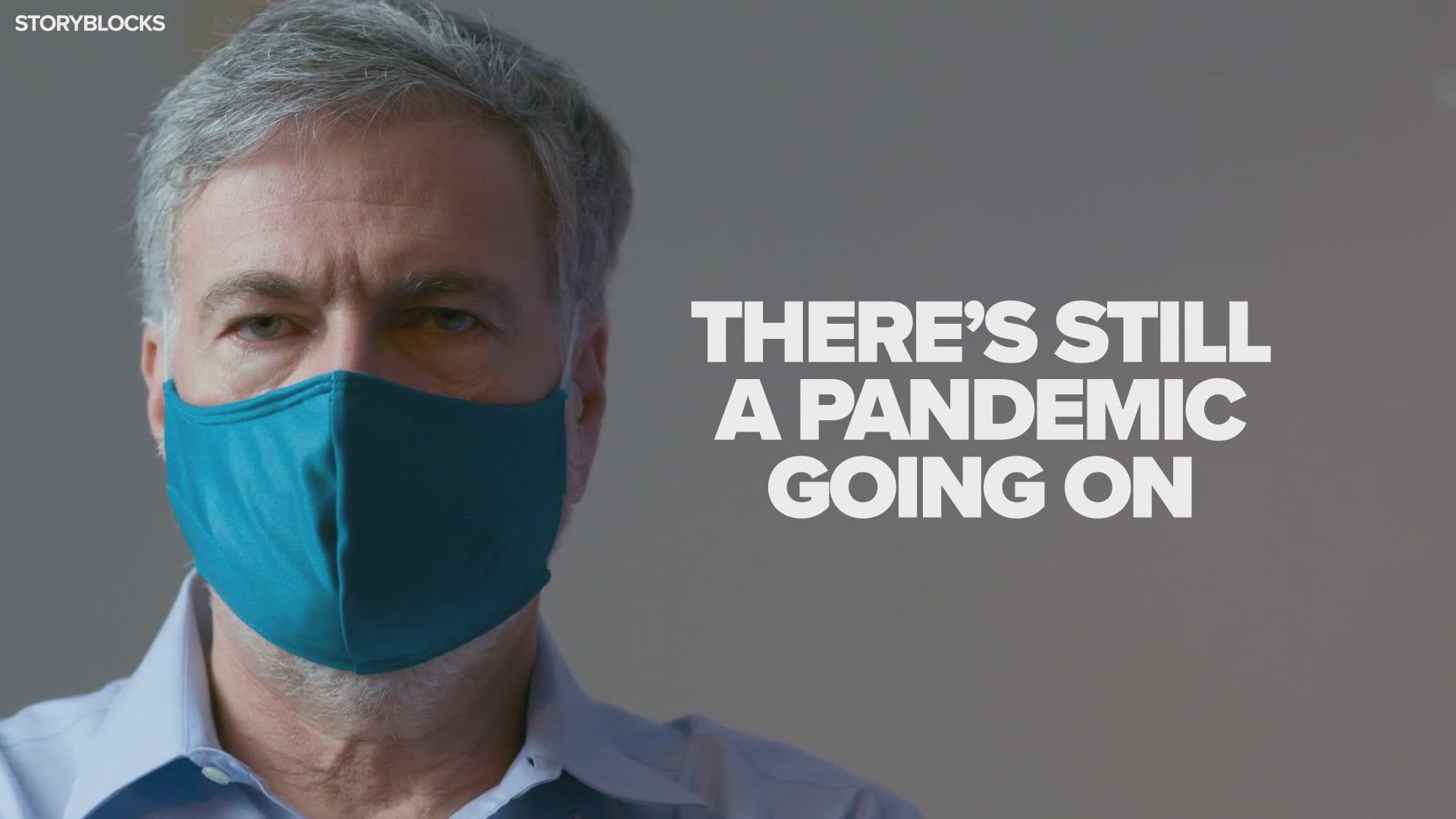Does a face mask protect me, or just the people around me?
It likely provides protection for both.
Studies on the new coronavirus and other germs show wearing a mask helps stop infected people from spreading disease to others. Evidence also suggests that masks may offer some protection for the people wearing them.
The virus spreads from droplets people spray when they cough, sneeze or talk. Surgical or cloth face masks can block most of those particles from spreading.
While some droplets may still spread out, wearing a mask could reduce the amount, providing a benefit to others. Research shows people don’t get as sick when exposed to smaller amounts of virus, said Dr. Monica Gandhi, a virus expert at University of California, San Francisco.
And masks may protect the people wearing them by reducing the amount of droplets from others that might make contact with them.
In two U.S. food processing plants where masks were required and infection clusters occurred, Gandhi noted that most workers who developed COVID-19 had mild illness or no symptoms.
Research on a different coronavirus has also found low infection rates among people who frequently wore masks in public.


Experts say masks are particularly important with the new coronavirus because infected people can be contagious even if they don’t have symptoms.
For most people, the new coronavirus causes mild or moderate symptoms. For some, especially older adults and people with existing health problems, it can cause more severe illness, including pneumonia and death.
The United States has more than 5.8 million confirmed cases of COVID-19, according to statistics from Johns Hopkins University.
Just after 4 a.m. EDT Thursday, the U.S. had more than 179,000 deaths from the virus. Worldwide, there are more than 24 million confirmed cases with more than 825,000 deaths.

